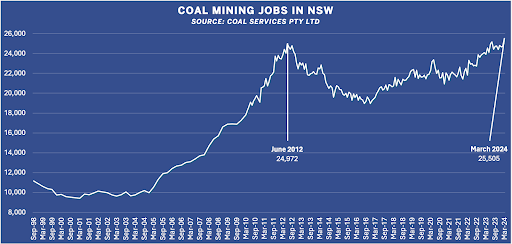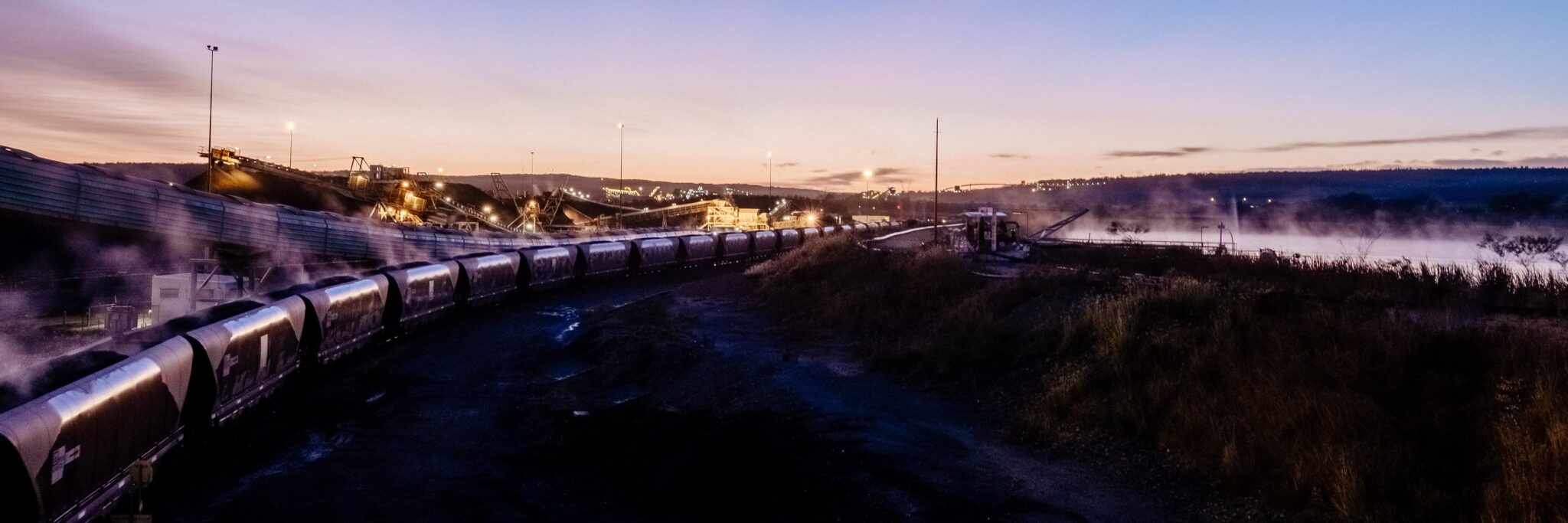Page
NSW coal jobs hit new record high – 25,500: Export volumes also up
NSW coal jobs hit new record high – 25,500: Export volumes also up
Coal mining jobs in NSW reached record numbers in March 2024, smashing through the 25,000 barrier for only the second time since coal job numbers were first recorded a quarter of a century ago.
The new record jobs number of 25,505 to March this year is the highest number of coal jobs ever recorded by Coal Services Pty Ltd since it began tracking the number of people working in coal mining in NSW in 1998.
The 25,500 coal mining workers in NSW are more than double the number first recorded in the last quarter of 1998, when there was a workforce of 10,898 coal mining workers across the state.
The latest data shows that in the Hunter – NSW’s largest coal mining region – there were 14,750 coal mining jobs in March 2024.
In the Gunnedah region, the data shows that coal mining jobs remained at near-record levels, with 3,116 coal mining jobs in March 2024, only a slight drop from the all-time record number of jobs set in April 2023 of 3,253.
The data shows that in the Western region of NSW coal mining jobs have reached an all time high with 3,585 workers in coal mining compared to just over 1,400 when job numbers were first recorded in 1998. In the Southern region of NSW the number of coal mining jobs improved over the last 12 months with 3,344 local coal mining workers, over a hundred more than the same time last year.
NSW Minerals Council CEO Stephen Galilee said the increase in coal mining jobs in NSW was a sign of the ongoing importance and resilience of the NSW coal sector.
“The record number of people working in the NSW coal mining sector shows that over the last 25 years, coal mining has become increasingly critical to regional communities and the state economy. These job numbers also highlight the need to support mining communities,” Mr Galilee said today.
“A mark of the importance of the coal mining sector to NSW is the strong ongoing demand for our high quality coal. Coal Services figures show that coal exports to our major trade partners are up almost 16 percent with thermal coal exports used in energy production up over 19 percent.”
“NSW coal mining is playing a critical role in the budget repair task being undertaken by the State Government. In particular, the decision to increase coal mining royalty rates from 1 July 2024 was the single biggest revenue decision taken by the NSW Government.”
“Metals mining jobs are also at near record levels with nearly 8,000 people working in the NSW metals mining sector based on the latest annual NSW Mining Industry Expenditure Survey,” Mr Galilee said.


